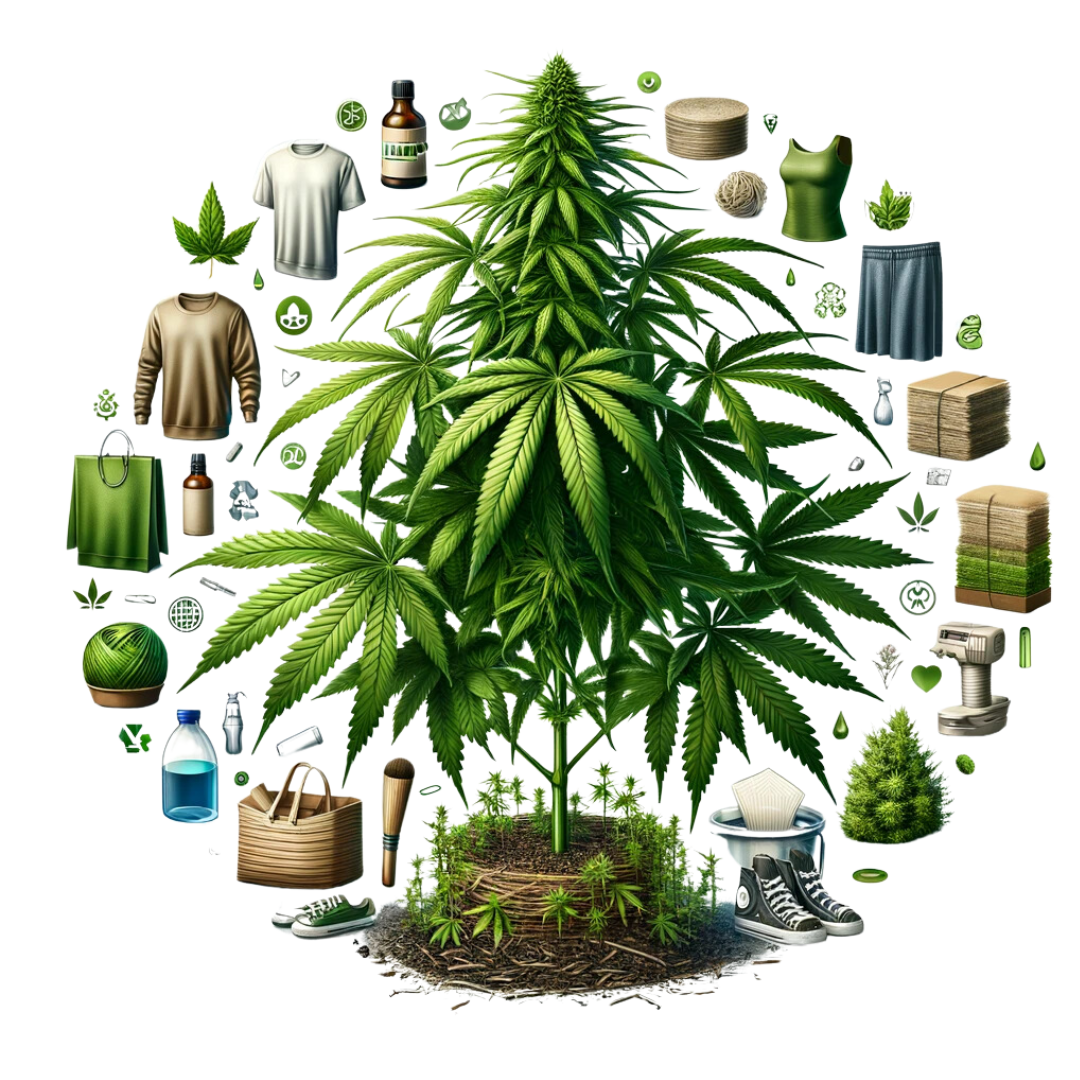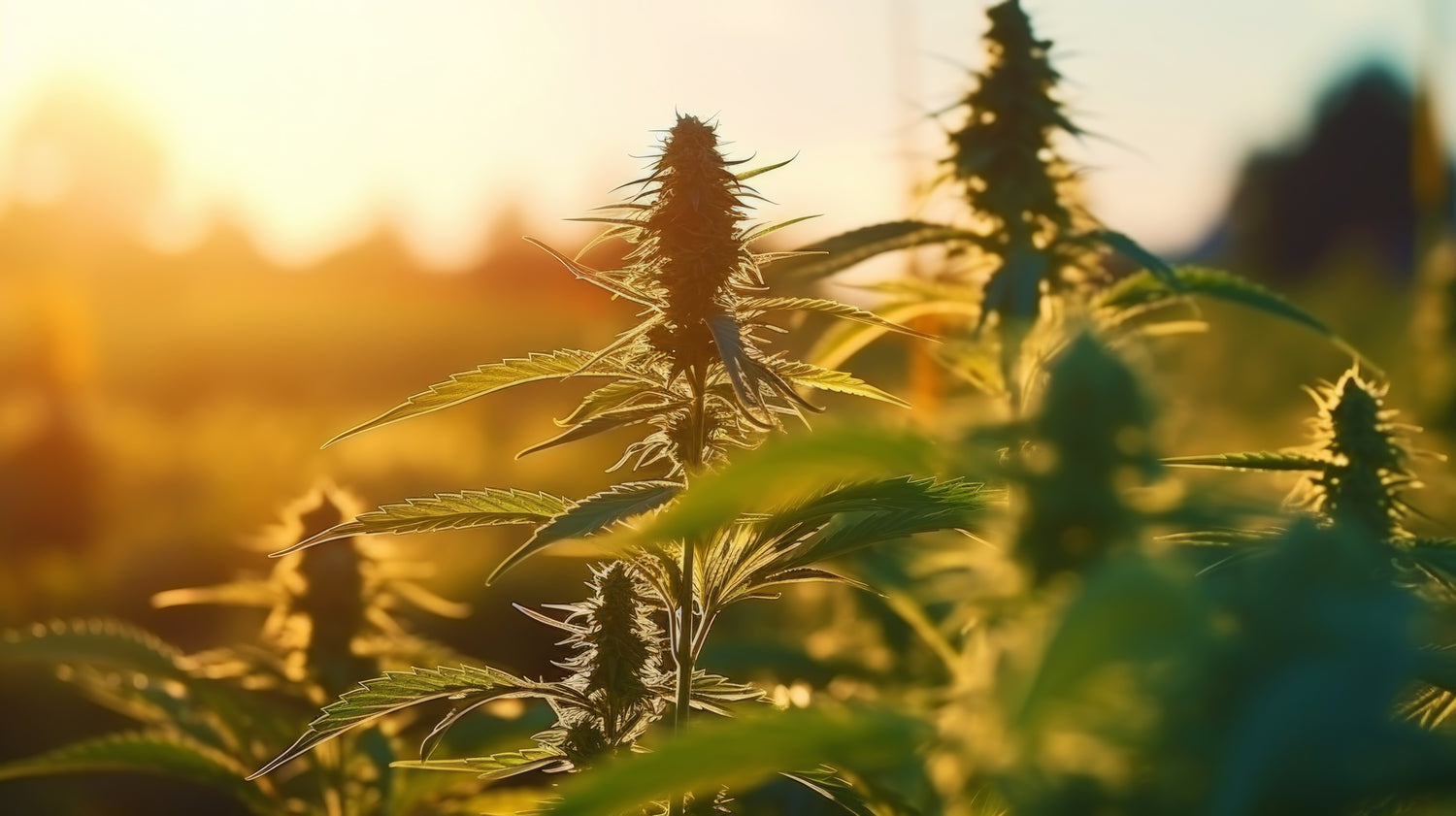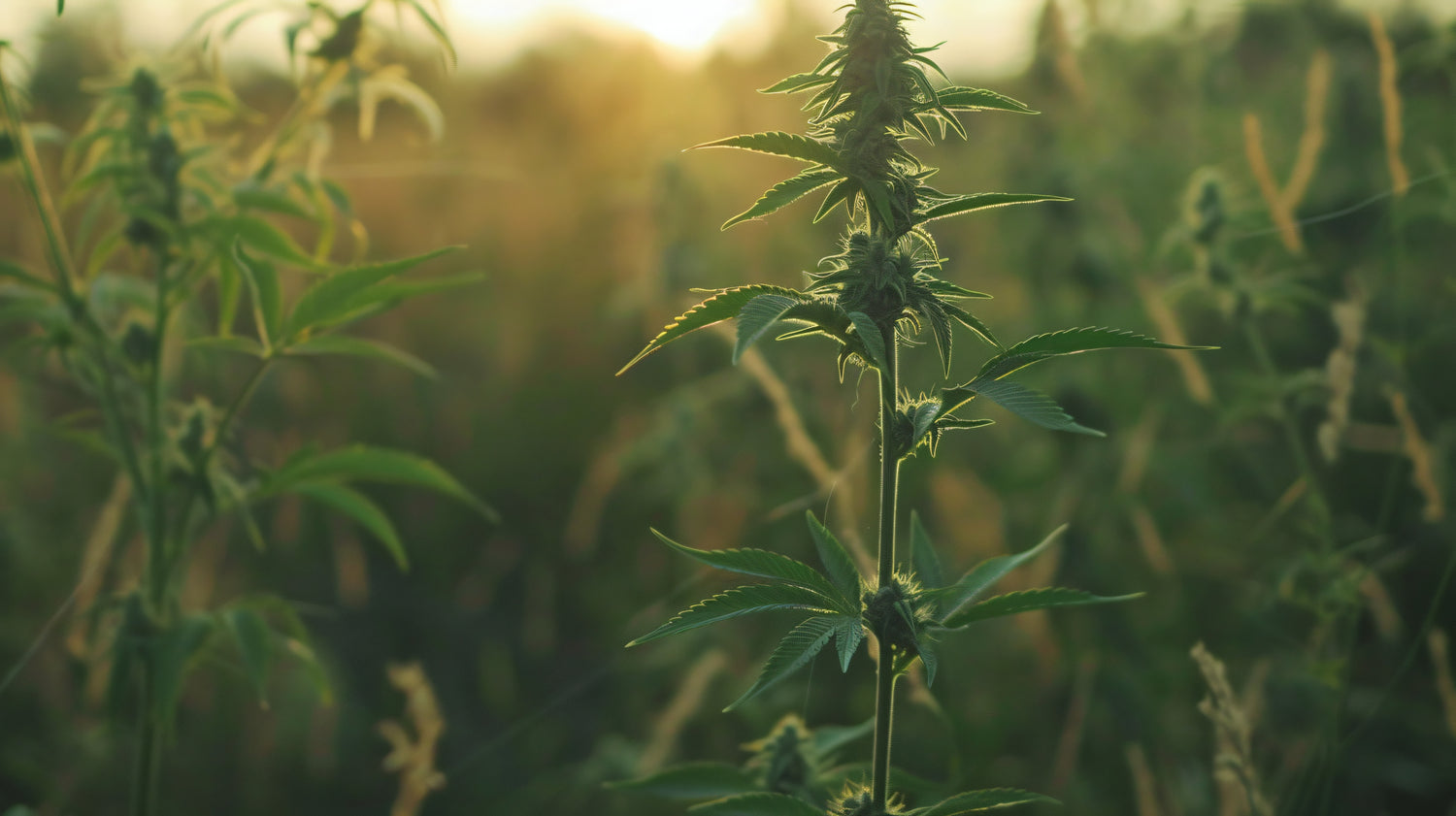Hemp: Nature-Based Carbon Capture Storage System
WHY HEMP?
Industrial Hemp is 100% biodegradable, recyclable, and reusable and can be used in over 25,000 products with advanced processing technology.
Another benefit of industrial hemp is its ability to absorb carbon dioxide (CO2) twice as effectively as forests, which means it plays a crucial role in mitigating greenhouse gas emissions.
In addition, industrial hemp possesses regenerative properties: It not only absorbs CO2 but also reintroduces it naturally into the soil, thereby regenerating it by enriching the soil with nutrients and aiding in the restoration of nature.



